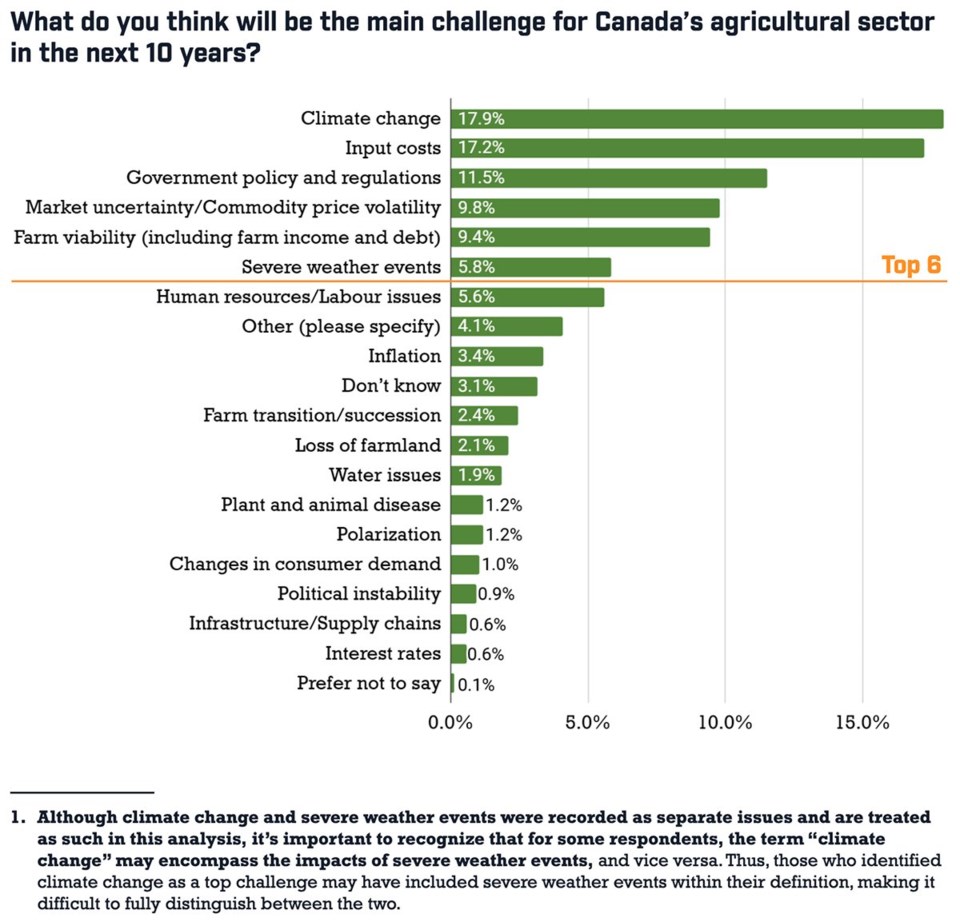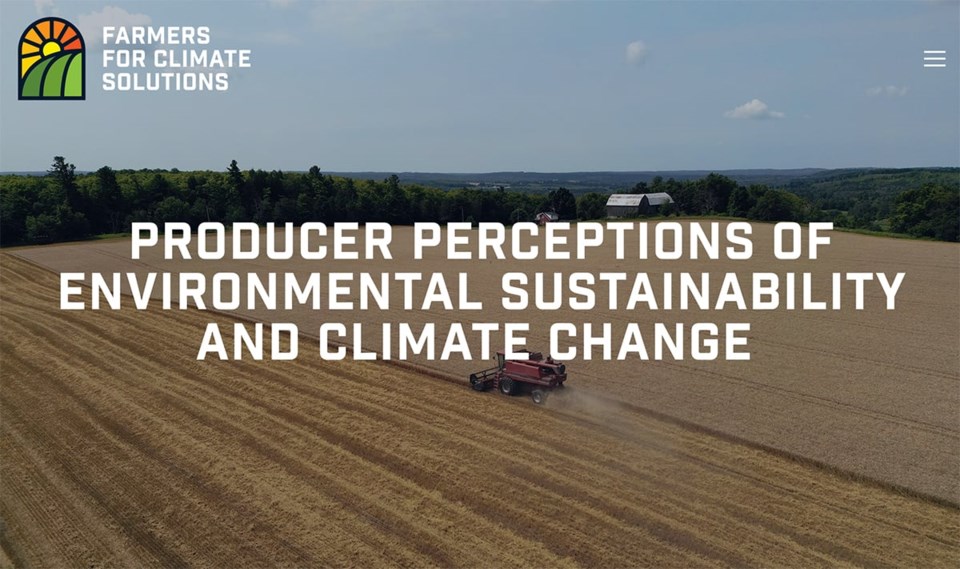WESTERN PRODUCER — A poll released Dec. 11 suggests that Canadian farmers worry more about the impacts of climate change than they do about input costs and market prices for canola, corn, wheat and cattle.
determined that farmers rank climate change as their No. 1 concern.
“When farmers and ranchers were asked an open-ended question—at the very beginning of the poll—about the top challenge for the agricultural sector for the next decade, climate change was the number one answer,” says Farmers for Climate Solutions, a group, that as its name suggests, is focused on climate change mitigation and adaptation within Canadian agriculture.
The organization hired Leger, a market research firm, to conduct the survey.
It was done by phone from Aug. 8 to Sept. 8.
The headline question from the poll asked farmers to identify the top challenge for the agriculture sector over the next 10 years.
The results?
- 17.9 per cent said climate change.
- Input costs were 17.2 per cent.
- Government policy and regulations, 11.5 per cent.
- Market uncertainty/price volatility, 9.8 per cent.
About 5.8 per cent of respondents ranked severe weather as their No. 1 challenge over the next decade.
Brent Preston, president of Farmers for Climate Solutions, said the poll result was unexpected.

Screencap via farmersforclimatesolutions.ca
“I was surprised that climate change was right at the top. I thought it would be a concern for most producers, but I didn’t think it would be the number one concern,” said Preston, a vegetable grower from Creemore, Ont.
Farmers for Climate Solution decided to pay for a poll because it wanted information on how farmers feel about climate change and related issues.
He said it’s important to have this sort of data when meeting with federal and provincial officials.
“We’re hoping it will give us ammunition when we talk to politicians and policy makers,” he said.
“We can now say, ‘look, this is an issue that’s top of mind for producers and we’re hoping governments are going to do more to help up adapt.’ “
East-west split
The poll suggests that Canadian farmers are anxious about climate change, but the details within the 37-page report tell a more nuanced story.
Eastern farmers are concerned about the climate, while western producers are less so:
- 116 farmers out of 450 respondents (26 per cent) from the East ranked climate change as the biggest challenge over the next decade.
- In the West, 38 of 408 respondents (9.3 per cent) said climate change was the biggest challenge.
Nearly three times more farmers in Quebec, Ontario and the Maritimes are worried about climate change.
The gap between East and West is striking, Preston acknowledged.
“There’s a very clear difference in perception or attitude,” he said, adding that farmers across Canada have some concerns about climate change.
“Everywhere in the country, climate change is in the top three.”
In its report, Farmers for Climate Solutions noted that Prairie farmers are less concerned about the issue.
“Input costs and government policies are seen as the top challenges (in the West).”
In more detail, 21 per cent of western farmers said input costs are their top challenge. About 16 per cent said government policy and regulations. Around 12 per cent cited market uncertainty and nine per cent said climate change.
The poll received responses from 858 people across Canada, including 247 farmers from Quebec. That’s nearly 29 per cent of the total for a province that has five per cent of the country’s arable land.
Comparing the total number of poll respondents, 450 out of 858 were from Ontario, Quebec and the Maritimes. The remainder, 408, were from the West.
A critical piece of data that could be missing from the poll is the opinions of large-scale farmers.
Of all the producers who responded, about 50 per cent said they have farm revenues of zero to $500,000. Only 7.6 per cent in the survey had revenues of $3 million or higher.
More large producers are likely needed in the survey to paint an accurate picture.
“You might be right. We may have over-represented small farmers,” Preston said, adding it was difficult for Leger to acquire lists and contact information of producers.
“The sample is definitely not perfect…. We’re not going to use these results to say that definitively, X per centage of farmers think (this or that) … but we think the sample is good enough to make some broad inferences.”
Contact [email protected]
Related Coverage
About the author




